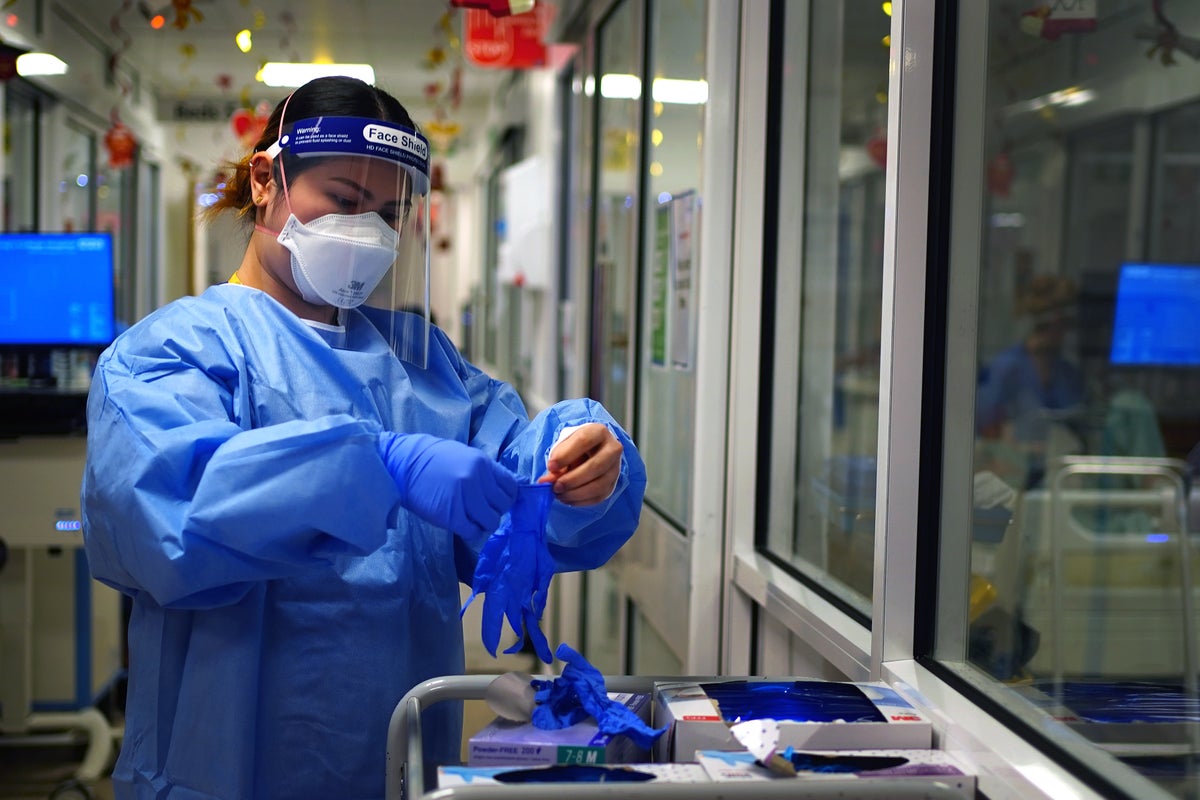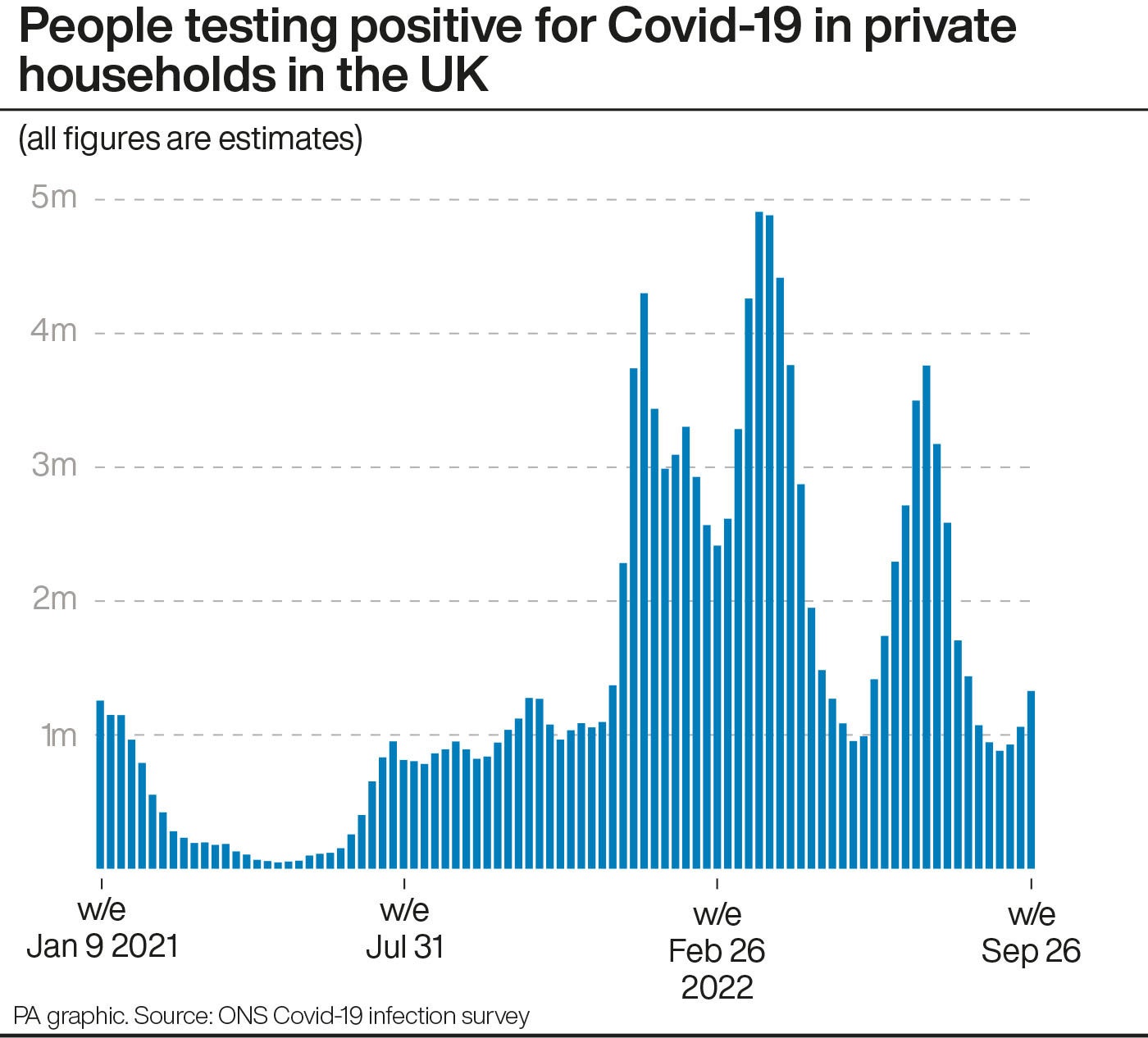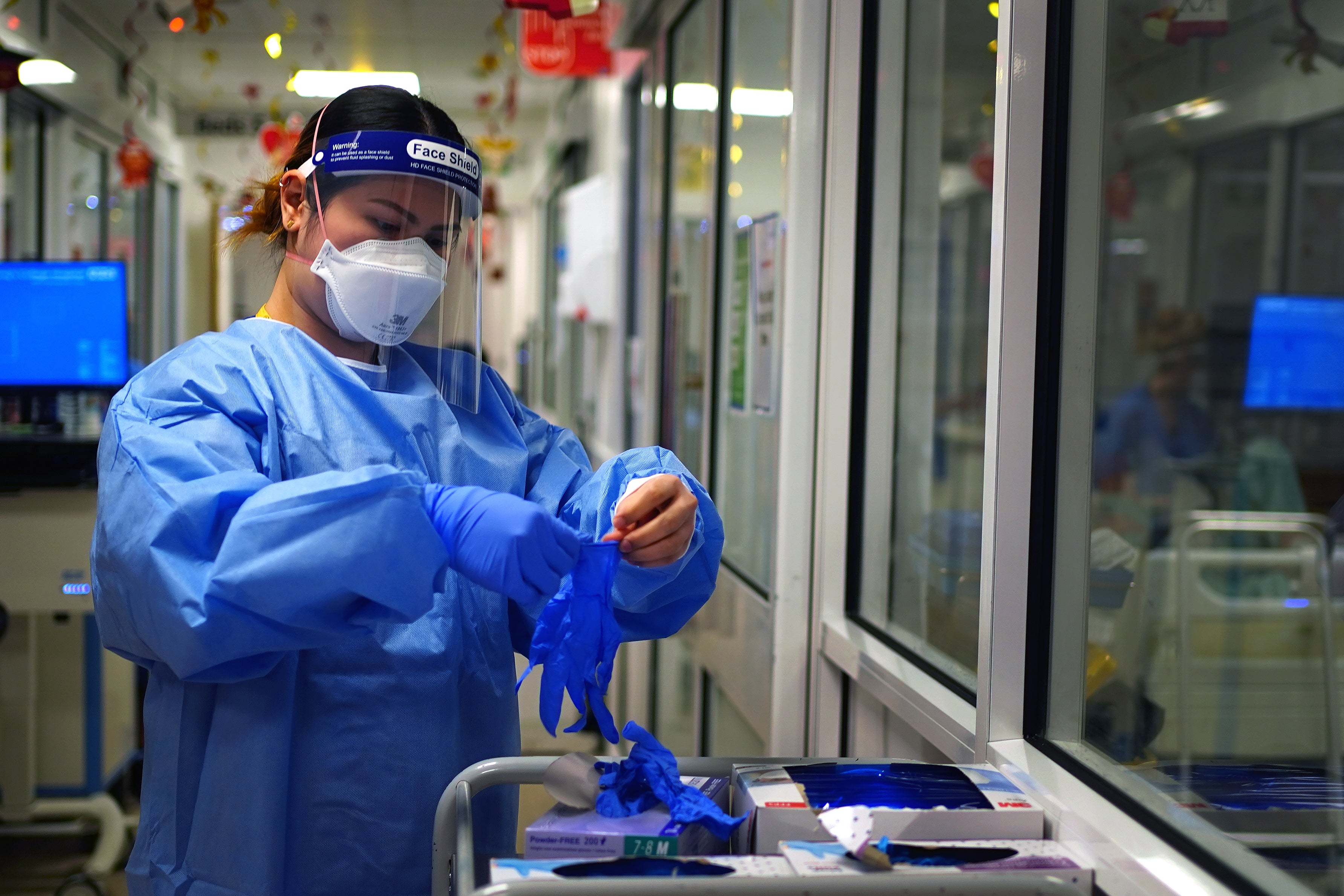
Covid cases in the UK have surged by 25% in a week amid concerns a new wave of the disease is already underway.
Some 1.3 million people tested positive for the illness in the week ending 26 September, according to the latest figures from the Office for National Statistics, an increase on 1.1m the week before.
Infections increased in England and Northern Ireland but the trend is uncertain in Scotland and Wales, the ONS added.

It comes a day after separate figures released by the ONS said that were 2.3 million people in the UK living with long Covid - an increase of 300,000 cases in the previous reporting period.
Hospitalisations for Covid-19 are also on the rise. The number of people admitted to wards went up by 37 per cent in the past week, according to government figures.
A total of 9,631 people with coronavirus were in hospital as of 8am on Wednesday, according to NHS England – the highest figure since 3 August.
According to the NHS, most people suffering with long Covid recover within a few days or weeks and usually make a full recovery within 12 weeks.
For some, however, the symptoms can last longer.
Extreme tiredness or fatigue, shortness of breath, loss of smell and muscle aches are among some of the most commonly reported symptoms.

Of people with self-reported long Covid, 253,000 (13 per cent) said they first had (or suspected they had) the virus less than 12 weeks previously, 1.7 million people (83 per cent) at least 12 weeks previously, 892,000 (45 per cent) at least one year previously, and 429,000 (22 per cent) at least two years previously.
As a proportion of the UK population, the prevalence of self-reported long Covid was greatest in people aged 35 to 69 years, females, people living in more deprived areas, those working in social care, those aged 16 years or over who were not working and not looking for work, and those with another activity-limiting health condition or disability, the ONS said.
Covid cases have been relatively low through the summer months but are beginning to rise again.
According to the latest available official figures, they were up 14 per cent.

Some 1.1 million people in private households tested positive for coronavirus in the latest ONS survey, which covers the seven days to 17 September in England and the week to 20 September in the other three nations.
Experts have warned the country could be heading into another “devastating” wave of the virus this autumn, exacerbated by a drop in testing and inadequate surveillance of new immune-evasive subvariants.
Professor Tim Spector, co-founder of the Covid ZOE app, told The Independent the UK was already at the start of the next wave of coronavirus.
“It looks like we’re in the start of the next wave and this time it’s affected older people slightly earlier than the last wave,” Prof Spector said.
He added: “Many people are still using the government guidelines about symptoms which are wrong. At the moment, Covid starts in two-thirds of people with a sore throat. Fever and loss of smell are really rare now – so many old people may not think they’ve got Covid.
“They’d say it’s a cold and not be tested.”







